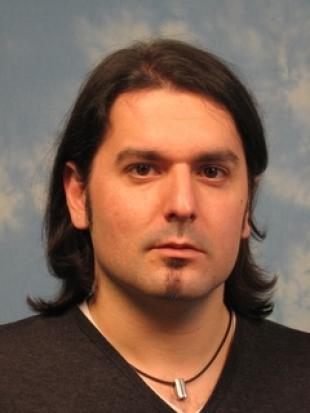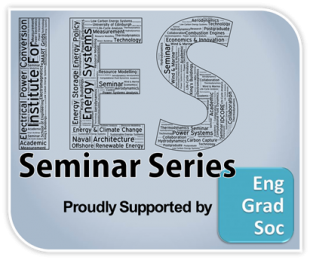Location:
Alrick Building, Classroom 10
Date:
Presenter: Dr. Gregory Francois
Affiliation: University of Edinburgh, Institute for Materials and Processes (IMP)
Title: Real-Time Optimisation of Energy Systems
Abstract
Real-Time Optimization, or Measurement-Based Optimization is a family of feedback based optimization methods for optimizing the performances of processes despite disturbances and modeling errors, the latter taking the form of parametric uncertainty and/or structural plant-model mismatch. RTO encompasses several methods and tools from sensing technology and control theory into the optimization framework. The 1st RTO that received attention is the so-called two-step or two-stages approaches. With this method, the difference between predicted and measured outputs is used to update the model to recompute the optimal solution. Though this approach has become a standard in industry, it has recently been proven that, in the presence of plant-model mismatch, this method is very unlikely to drive the process to optimality. In this talk, I will discuss two alternative RTO approaches, to which I had the opportunity to contribute, namely the modifier adaptation approach and the SCFO solver, where SCFO stands for Sufficient Conditions for Feasibility and Optimality. The main advantage of these methods lies in their proven ability to converge to the true plant optimal solution, despite structural plant-model mismatch and disturbances. This property, among others, makes them particularly well suited for the optimization of energy systems. The application of these methods to two energy systems will be presented: (i) modifier adaptation and SCFO solver for the constrained maximization of electrical efficiency of an experimental and an industrial fuel cell stack under random load changes and (ii) modifier adaptation of tethered kites. It will also be explained how modifier adaptation, which is a steady-state optimization method by nature, was successfully applied to a kite prototype which are indeed dynamical systems and thus, for which the solving of a dynamic optimization problem was sought.
Biography
Dr. Gregory Francois received a chemical engineering degree and a DEA in Process Engineering from the Chemical Engineering School of Nancy (ENSIC), France, in 1998, a PhD in Process Systems Engineering from Swiss Federal Institute of Technology of Lausanne (EPFL) in 2004 and a Habilitation Thesis in Process Systems Engineering from the Lorraine University in 2014. Dr. G. Francois started as a Senior Lecturer in Chemical Engineering at the UoE late 2015. His research interests include steady-state and dynamic process optimisation, optimal control, process modelling and control, with application to a wide range of chemical processes, energy systems (Fuel Cells, Kites, …), bioengineering (Diabetes)… More specifically, he is particularly interested in the methodological development and the application of novel optimisation techniques whereby measurements and feedback are used to compensate for the detrimental effect of parametric and structural plant-model mismatch to the optimisation of real processes. Before joining the University of Edinburgh he occupied several academic positions mainly at EPFL and in France.




